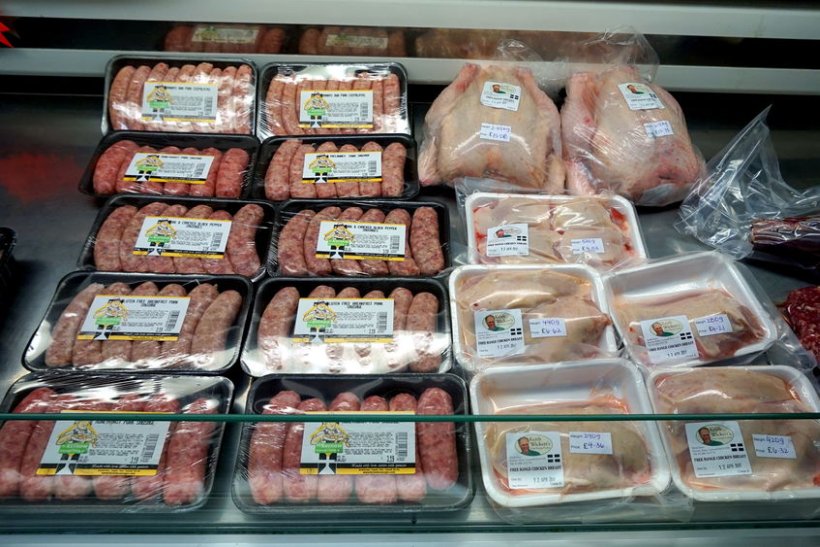
The government has been accused of failing to consider the impact of trade deals on public health as protections around food imports are 'already weakened'.
This is according to a new report by the Future British Standards Coalition (FBSC), which says the government is seeking trade without 'adequate rigour or transparency'.
Ministers have been urged to abandon 'behind closed doors' trade policy and include public health and green voices on its trade commission.
The Safeguarding Standards report says parliamentarians have given themselves powers to change the rules on food imports without votes or proper scrutiny.
Rules governing the use of hormones and food additives are now 'easier to change', while standards on the use of antibiotics in farming have 'already been deleted', the coalition says.
With the government resisting strong pressure to commit in law to maintaining standards, fears have persisted that lower quality food could undermine UK farmers.
Countries with whom the UK is negotiating allow concerning production methods. The report gives an example of the 2018 outbreak of super-resistant Salmonella in the US, which was linked to the overuse of the antibiotic Azithromycin in cattle.
Elsewhere, in Australia, 71 pesticides are used which the report warns have 'direct links' to health damage, including birth defects, cancer and hormonal disruption.
It argues that maintaining high import standards would enable the UK government to build new markets for British farmers and potentially drive up international standards.
It comes as government pledged to make its new advisory Trade and Agriculture Commission (TAC) a statutory body for at least three years, and committed to issuing a report to parliament on each new trade deal it negotiates.
While the FBSC welcomed this, it does not believe the current membership of the TAC matches the government's original pledge to “ensure the voices of the public … are heard”.
Similarly, the coalition notes that the Defra Secretary will get to choose who is consulted on the formation of the reports, and that MPs will still only be able to postpone rather than reject trade deals based on their findings.
In the absence of commitments to high food import standards in primary legislation, the FBSC urges ministers to widen the TAC’s expertise and remit.
The FBSC calls on ministers to ensure the body includes representatives on public health, environment, animal welfare and consumer protection to provide 'missing expertise'.
Kath Dalmeny, chair of the Future British Standards Coalition, said UK consumers had 'consistently rejected' the prospect of 'poorly produced food'.
"The government needs to show the public it is listening and taking advice from a wide range of experts," she added.
"It should start by appointing a Trade and Agriculture Commission that reflects a proper range of expertise and ditching this behind closed doors approach to negotiating trade deals.”
George Dunn, chief executive of the Tenant Farmers Association, said the government must show that was determined to deliver its manifesto pledge to protect standards in trade.
"The unity of voice across farming... underlines the imperative that UK government doesn't drop the ball in reaching trade agreements which undermine domestic food production standards.
"Extending the tenure of the Trade and Agriculture Commission will mean nothing if it is toothless, side-lined and ignored."
